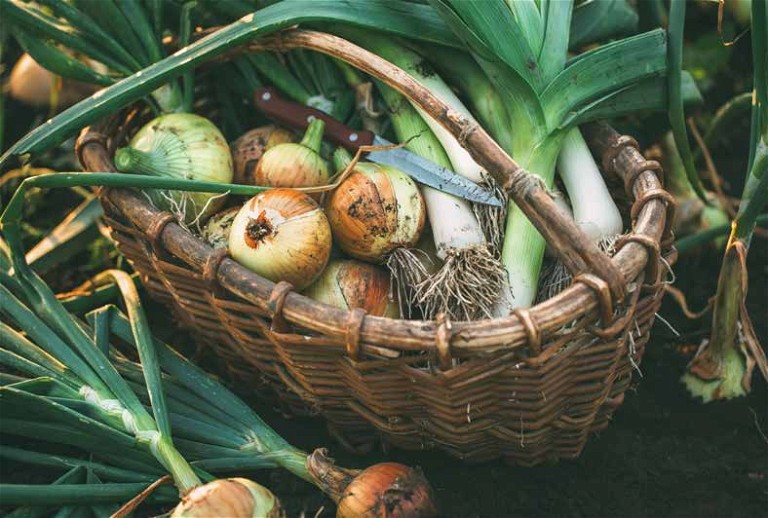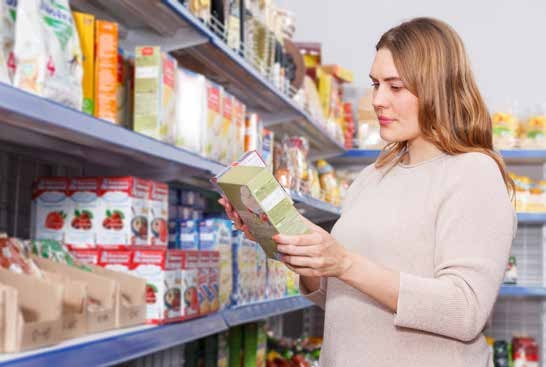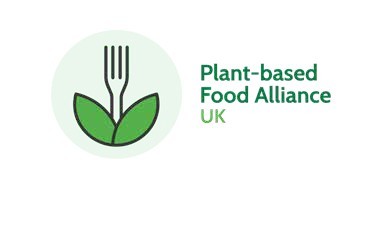PLANT-BASED FOOD ALLIANCE UK
At the end of 2021 the PBFA was formed – anew organisation to unify the plant-based food and drink sector and promote the case for a food system transformation


Founded by The Vegan Society, ProVeg UK, Alpro, Oatly and Upfield, the PBFA has over 300 years of combined experience in the plant-based foods sector. Joining us as CEO of the Alliance is Marisa Heath, an expert in government policy, food systems and animal welfare.
Marisa says, “Food policy can open the door to inclusiveness for the plant-based sector by integrating broad thinking and future planning on food at a level that filters into every part of our society. For example, a policy mandating that plant-based food must be offered at schools, in hospitals and at public events will make even those who are currently not interested in the offer open up to it and begin to see it as a normal part of our diet.”
Key priorities
The Alliance draws on the experience of similar international groups, such as The European Alliance for Plant-based Foods and the US Plant Based Foods Association. These groups show that through businesses, NGOs and supporting organisations coming together, we can create a fairer policy landscape for plant-based foods which can help us move towards a fairer world for all living beings.
There are multiple factors at play which lead us to be certain the Alliance will be a success in the UK. Firstly, there is increasing public pressure for our government to acknowledge the environmental damage that animal agriculture does to the planet. Then there is the vast amount of innovation in the plant-based market that has seen sales skyrocket in the last few years. Finally, as more people embrace plant-based eating, they may experience a number of health benefits and reduce the burden on the NHS.
These three factors – environment, economy and public health – are key priorities for our government, and mean we can promote the plant-based agenda in upcoming environmental, food and business policy. Though this messaging is not directly linked to animals, it undoubtedly supports The Vegan Society’s aim to remove animals from our food system.
Our 2022 plans
National Food Strategy
In 2019 Henry Dimbleby (co-founder of the Leon restaurant chain) was commissioned to conduct an independent review of England’s food system. Dimbleby’s National Food Strategy was published as Part One (July 2020) and Part Two (July 2021). Part Two calls for a “protein transition” in which the public are encouraged to consume plant proteins, and explicitly states that “developing and manufacturing alternative proteins in the UK, rather than importing them, would create around 10,000 new factory jobs and secure 6,500 jobs in farming to produce protein crops.”
At the time of writing (February 2022), the government is expected to respond to recommendations in coming eeks, and the Alliance eagerly awaits to see where we can have a positive impact. In line with this, we are planning to launch our own plant-based food charter that shows our role within the broad food system. The charter will set out the role plant-based foods play within the major issues we face – such as climate change, health, food waste, economic growth and food security. Alongside this it will show the future vision for plant-based food and the steps needed to get there.

Food labelling
The issue of food labelling is important to everyone, and is often a hot topic for the public, media and government alike. Over the last few years, you may have seen eco-labelling appear on food packaging.
This is where food and drink products are typically graded an A*- G, on a traffic light system, on their environmental impact. There are currently several different grading systems used, using different metrics, such as water usage, biodiversity loss and carbon emissions.
Eco-labelling is being pursued by industry to help shoppers quickly make informed choices at the point of purchase but, to avoid future confusion and speed up the process, there is an urgent need for an agreed international standard.
The Alliance welcomes the concept of eco-labelling in theory, as plant-based products often have a low environmental footprint, and will be working to ensure that any government measures on this are fair and clear.
Post Common Agricultural Policy subsidy schemes
Having now left the European Union, the UK has designed its own agricultural policy to replace the Common Agricultural Policy (CAP). Within CAP, farmers were given direct payments related to how much land they owned, not how much food they produced. This controversial approach has caused many issues, one of which being animal farmers receiving huge amounts of subsidies compared to, for example, fruit farmers.
The upcoming Environmental Land Management scheme will replace the CAP scheme, using a “public money for public good” approach, where farmers are rewarded for sustainable farming as well as environmental benefits. The Alliance is championing the move to more crop-based farming, reducing “livestock” farming and freeing up land for rewilding and biodiversity.
To learn more about the Alliance, visit plantbasedfoodalliance.co.uk.
By Louisianna Waring, The Vegan Society’s Senior Insight and Policy Officer, and Marisa Heath, CEO of the Plant-Based Food Alliance UK

